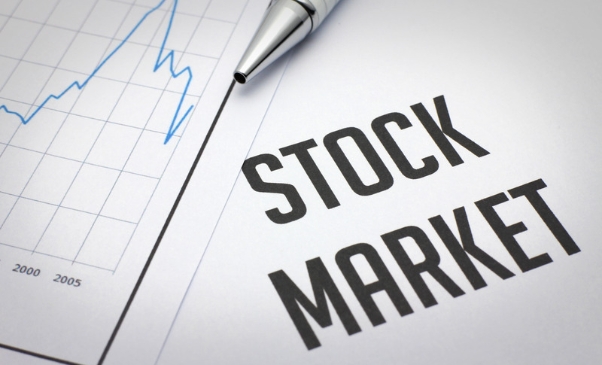What is The Average Stock Market Return? and The Factors Which Impact It?
Over the past 100 years, the average return on the stock market has been about 10% per year. Showing that an investment in the stock market a hundred years ago would have earned an average of 10% per year. Still, there have been many years in which the stock market did either very well or badly. In the 2000s, the average return on the stock market was 2%. In the 1920s, the average return on the stock market was 17%.
You can't be sure that the return on your investment will be the same as the return on the market. If you are willing to take on more risk, investing in stocks could be a good way to build wealth over time.

What Is the Average Stock Market Return?
When talking about a stock market, the term "average return" refers to the "rate of return on equity investments" over a certain amount of time. This could be looked at different points in time, from a single day to five or ten years.
Knowing the average return on the stock market is important because it can tell you a lot about how the market is likely to act in the coming years. You can use it to determine if the stocks you own are overpriced or underpriced so that you can make a smart investment decision.
Factors That Impact Stock Market Returns
When you trade stocks, your ability to make money depends on several factors. At this point, the health of the economy as a whole should be the most important thing to worry about. When there are signs that the economy is improving, the value of stocks increases. When the economy is bad, on the other hand, stock prices tend to go down. Returns on investments in the stock market can be affected by a wide range of factors, such as the success of each company, the political and economic climate, and what's happening worldwide.
Projecting Future Returns on Investments
When figuring out the average rate of return of the stock market, it is important to remember that how the market did in the past is not always a good indicator of how it will do in the future. If you want to make accurate predictions about the returns your investment will give you, you need to know how well it has done in the past. But it is also important to think about other things, such as the current state of the economy and predictions for how it will change in the future.
Still, a few basic rules point to an average annual return on investments in the stock market between 8% and 10%. It is hard to know how much money you will make by investing in the stock market. However, if you look at data from the past, you may get a good idea of what to expect in the future. Because the answer to this question depends a lot on the specific investment strategy used, it is important to think carefully about the pros and cons of each option before making a final choice.
Strategies to Maximize Long-Term Gains
If you want the best long-term results from your stock market investments, stick to a few tried-and-true rules. Spread your assets as much as possible to lower the chance of losing them. Before putting money into the market, you should learn about stock patterns by doing research. Also, looking for companies that pay bigger dividends will help you get better long-term returns. To do this, you can look for companies that offer stock options. Most people think investing in the stock market for the long term is safer than trying to make quick money by guessing what will happen.

Understanding Investment Risk and Reward
Investing in the stock market comes with its own set of risks that must be taken into account if you want to understand the average market return fully. Long-term stocks can bring in a lot of money, but their performance in the short term is hard to predict and can even be bad. So, if you want to invest in stocks, you should make sure you can lose money and make money.
When deciding whether or not to buy stocks, it's important to consider how much money you can expect to make. The price of a company's stock on the market tends to rise as its profits rise. This is because stock prices tend to rise as a country's economy grows. It's a chance for stock market investors willing to take on more risk to make more money.
Benefits of Investing in the Stock Market
If done correctly, investing in the stock market may have several advantages. There may be less initial risk over a longer time frame, but your wealth could still increase if you invest wisely. Investing over the long haul may provide this advantage. Investment returns in the stock market are often greater than those in bonds or cash. You can do so confidently if you plan to hold on to your stock investments for the long haul.
Moreover, stockholders are entitled to a proportional split of the company's earnings. Your income will increase according to the firm's success, as measured by its share price growth. Simply put, your earnings will increase in proportion to the market value of the company's share price. A decrease in your return is expected if the company's performance falls short of expectations and the share price falls. Therefore, investing in stocks is more dynamic than investing in other types of assets, and it allows you to diversify your portfolio by adding companies from various industries.
Measuring Volatility and Risk in the Stock Market
When figuring out the return on an investment in the stock market, you have to consider not only the fact that the prices of individual stocks are hard to predict but also the risks that come with buying and selling stocks. The amount that a stock's daily closing price can change daily is called its volatility. When it comes to risk, the more volatile an investment is, the higher the risk is. When investing money, companies with higher volatility tend to give bigger returns. However, stocks with higher volatility also carry a higher level of risk.
If you invest in stocks with wild price swings, you may have a better chance of getting rich but also risk losing a lot of money. This is because the prices of these stocks change a lot. The opposite is true for stocks from companies whose prices don't change as much; even though the potential rewards are smaller, the risk is also lower.
Conclusion
The "average return on the stock market" is the amount of money an investor can expect to get back on their investment on average over a certain amount of time. The average rate of return depends on factors such as the type of investment, the level of risk involved in investing, and the state of the market as a whole.
Keep in mind that the average return on the stock market is the average return on investments made on the stock market. Some investors have a chance of getting returns that are higher than average, while other investors have a chance of getting returns that are lower than average. Since no one can say how the stock market will do in the future, smart investors should avoid making decisions with a short-term view and instead focus on building their portfolios with a long-term view.



